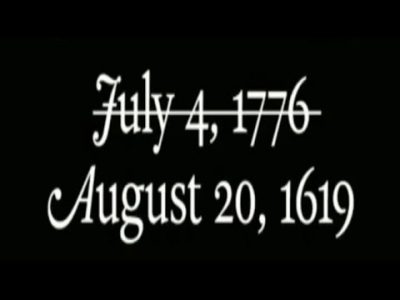
The countdown to calamity continues now at three years to January 6, 2025. At that point we will see if the Hitman will be successful in ending the United States as we know it … and whether it will be done peacefully or violently. The military knows the stakes involved and are aware of the need to prepare. Political pundits know that time of wimpy talk about culture wars must yield to more realistic talk about the America’s third civil war. At this point no one knows what the outcome will be. There is a realization that while January 6 was the poorly-planned slapdash attempt to steal the election, the effort for 2024 already is much better organized. This times the forces arrayed to overthrow the Constitution may even seize the Capitol in 2022 before turning to the White House in 2024 (excluding the impeachment efforts).
Meanwhile, what does The New York Times, as the paper of record, think about the history unfolding around us? Its responses may be grouped into three somewhat contradictory approaches – woke, patriotic, and scared.
WOKE
On one hand, there have been actions which suggest a woke outlook. Here are some snippets from the seemingly ancient resignation of Bari Weiss from the newspaper.
I was hired with the goal of bringing in voices that would not otherwise appear in your pages: first-time writers, centrists, conservatives and others who would not naturally think of The Times as their home. The reason for this effort was clear: The paper’s failure to anticipate the outcome of the 2016 election meant that it didn’t have a firm grasp of the country it covers….
But the lessons that ought to have followed the election—lessons about the importance of understanding other Americans, the necessity of resisting tribalism, and the centrality of the free exchange of ideas to a democratic society—have not been learned. Instead, a new consensus has emerged in the press, but perhaps especially at this paper: that truth isn’t a process of collective discovery, but an orthodoxy already known to an enlightened few whose job is to inform everyone else….
My own forays into Wrongthink have made me the subject of constant bullying by colleagues who disagree with my views. They have called me a Nazi and a racist ;…
The paper of record is, more and more, the record of those living in a distant galaxy, one whose concerns are profoundly removed from the lives of most people. This is a galaxy in which, to choose just a few recent examples, the Soviet space program is lauded for its “diversity”; the doxxing of teenagers in the name of justice is condoned; and the worst caste systems in human history includes the United States alongside Nazi Germany.
How different is Weiss’s “distant galaxy” from the “alternate reality” depiction of Trumpicans today? They, of course, have their own “orthodoxy” about the stolen election and peaceful assembly of patriots on January 6 seeking to redress a wrong until planted FBI agents fomented the violence.
The great example of the woke New York Times is its assault on the United States in the 1619 Project. Whereas Trumpicans deny the legitimacy of Joe Biden’s presidency, the newspaper attacks the very legitimacy of the country as one born in sin and prospered through racism based on racist founding documents. I recognize that this Frankenstein monster may not be what was originally intended. However that does not change the fact that the closer we get to July 4, 2026, the more readers of the 1619 Project will call for the day to become one of mourning like Columbus Day and Thanksgiving and the less one to celebrate. And while Foxhub aims at adults, by contrast The New York Times seeks to educate the young not to have pride in their racist country.
PATRIOTIC
On the other hand, on Sunday, November 7, 2021, The New York Times had a special 24-page section entitled SNAP OUT OF IT, AMERICA! expressing a diametrically opposed view that ignores the 1619 Project. The front page exclaimed:
Our once restlessly inventive country has settled for sclerotic politics and modest ambitions. It’s time to dream big again. This is a special section featuring bold ideas to revitalize and renew the American experiment.
This was not the 1619 Project. The words express the hope and optimism of a country that once did dream big [until the landing on the moon] but subsequently has lost its mojo. It is a country mired in the little led by small-brained people seeking nothing more to remain in power. Today we could not build an interstate highway system or go to the moon. We can barely fill potholes with hundreds of members of Congress opposed to even such a tiny achievement.
On page 2, The New York Times expressed its vision.
America used to be a young country. And in its youth, it changed as it grew, the idea of what was American as malleable as the idea of what was America. The country expanded its borders, abolished slavery, broadened the franchise; waves of immigrants reshaped and revised America’s character; the government added and dropped functions, amending the Constitution to fit the times. It was a restless experiment.
But America is not young anymore.
The words are more reminiscent of James Earl Jones standing in a Field of Dreams about the ever-renewing promise and potential of America than they are of the 1619 Project.
The remainder of the section contains seven essays on what America should do next. The organizing theme was changing America through amendments to the Constitution. The specific recommendations are secondary to the theme of this blog on the expression of belief that America can renew its vision of itself and optimistically face a better future even with COVID, Climate Change, and Trump.
Sometimes people can be too idealistic for their own good. One favorite from this supplement is the call for a one-year mandatory national service program. This call is made in a country where people will not even wear masks or be vaccinated when their lives are on the line. And exactly what service could the Hitman or Speaker Marjorie Taylor Greene perform? Teach people how to wait for John Kennedy to return? To say nothing about the genuinely mentally ill. And how many ways would here be to game the system in the name of service?
A better approach would be draw on traditional American values of voluntarism and community associations as noted by Tocqueville. Providing incentives to do something constructive (higher social security payments?) probably would be more effective. National service then would be a choice and not a compulsion. Regardless of the details, the proposal hints at the need for a discussion on what it means to be an adult citizen in a constitutional republic.
The most immediately impactful suggestion in the current political arena is the one to redraw the map of the states. As one who has written about the West Virginia solution, the dividing of Confederate states into their Union and Confederate parts, I strongly support this recommendation which can be achieved through Article IV in the Constitution. All the issues of gerrymandering, voter suppression, rigged counting, partisan Secretaries of State, imperial state legislatures, and rural domination disappear if our states better reflected the different constituencies that exist today. The teeny-tiny view of thinking about Puerto Rico and the District of Columbia exemplifies the small-mindedness of sclerotic leadership noted on page 1 of this special supplement.
Regardless of what you may think about the seven proposals made or my comments on two of them, the point is they reflect an attempt to resurrect the can-do attitude than once made America the envy of the world and a magnet for millions. Now we a fading has-been on democracy death watch.
SCARED
The New York Times has caught up with reality and it is scared. It began the New Year with a big editorial on Sunday, January 6, 2022, entitled “Every Day Is Jan. 6 Now.” Exactly. Every day is part of the war leading up to January 6, 2025, when we will know who won or if we will divorce.
Every day is January 6 as the House Select Committee works to document and reveal the truth about the attempt to steal the election and overthrow the Constitution.
Every day is January 6 as the Hitman and his confederates both in and out of Congress fight back against the efforts of the House Select Committee to document and reveal the truth.
Every day is January 6 in Waiting for Godot style for the appearance of an Attorney General to indict the conspirators, a wait perhaps to end this January 5.
Every day is January 6 as Trumpicans seize control of the election infrastructure, the one infrastructure they believe in, so there will not even be a need to storm the Capitol on January 6, 2025.
Despite the editorial, The New York Times still has not fully come to grip with the real world. It writes:
Political violence is not an inevitable outcome. Republican leaders could help by being honest with their voters and combating the extremists in their midst.
ARE YOU SERIOUS? Republican leaders on CNN are going to free the Republican Party from Trumpican domination? How many Republicans as opposed to Trumpicans do you think there will be in the House of Representatives after the 2022 elections? Yes, there still are some Republicans out there and Larry Hogan intends to find them. But they can only return to power in the Republican Party if a disaster occurs to Trumpicans and the soul-selling Trump wannabees and that has not happened yet. Until then MAKE THE REPUBLICAN PARTY THE REPUBLICAN PARTY AGAIN is wishful thinking.
The New York Times concludes the editorial with an expression of awareness of the stakes involved. It calls upon the American people recognize the threat to Constitution sooner rather than later if we are to salvage a democracy that is in grave danger. Exactly right. Maybe the televised hearings will do it. In the meantime, The New York Times 1619 Project has been weaponized to undermine exactly what the newspaper professes to want in the supplement and fear in the editorial.












